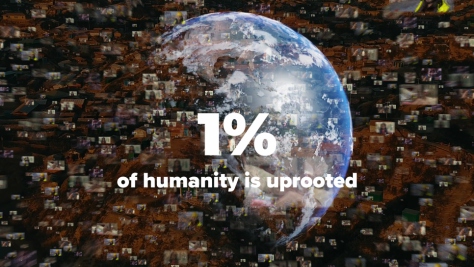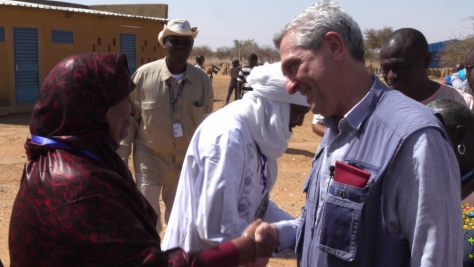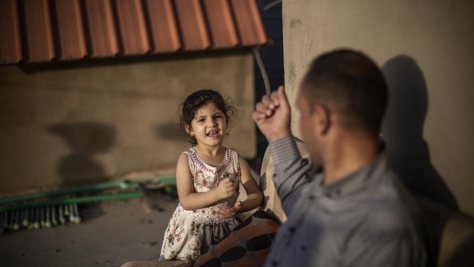Ethiopia: Somali refugees to be relocated away from border
This is a summary of what was said by UNHCR spokesperson Jennifer Pagonis – to whom quoted text may be attributed – at today's press briefing at the Palais des Nations in Geneva.
In Ethiopia today (Friday), UNHCR teams are expected to start relocating a group of 500 newly-recognized Somali refugees who fled from renewed conflict in strife-torn south and central Somalia over the last year. They have been staying around the Kebribeyah area, near the Somali border in eastern Ethiopia and are being relocated to a re-opened UNHCR camp at Teferi Ber.
The refugees are part of a group of 4,000 Somali refugees who have recently been granted refugee status by UNHCR and the government's Authority for Refugees and Returnees Affairs (ARRA). An estimated 7,000 additional Somalis who also claim to have fled fighting and insecurity in Somalia, are waiting to be screened at other sites in eastern Ethiopia.
The new camp site at Teferi Ber, some 120 km north of Kebribeyah, was formerly a UNHCR camp which in the 1990s hosted some 49,000 mainly Somalis refugees who had fled fighting in their country. The camp was officially closed in 2001 after all the refugees returned, mainly to the self -declared republic of Somaliland.
After arriving at Teferi Ber, the refugees will spend three days in a reception centre where they will be allocated plots of land to construct homes and given building materials. They will also be given food as well as tarpaulins, blankets, sleeping mats, kitchen sets, jerry cans, kerosene stoves, and soap. The ARRA has established a temporary health centre until permanent structures can be built.
The Somali Region of Ethiopia already hosts more than 16,500 refugees. With the new arrivals, the total is 20,300. At the peak of the Somali refugee crisis in the early 90s, the region hosted 628,000 refugees in eight camps. The overwhelming majority went home between 1997 and 2005, and all of the camps were closed except a camp at Kebribeyah.
Related news and stories
Thousands of newly arrived Somali refugees in Ethiopia relocated to new settlement
Samira's Story
Drought brings life-threatening food shortages for refugees in Ethiopia
100,000 new Somali refugees arrive in Ethiopia in the past month, UN and partners are calling for urgent funding
UNHCR teams and partners rush assistance to some 100,000 newly arrived Somali refugees in hard-to-reach area of Ethiopia
As the Horn of Africa drought enters a sixth failed rainy season, UNHCR calls for urgent assistance
-

2020 World Refugee Day Statement by UN High Commissioner for Refugees Filippo Grandi
19 Jun 2020 Everyone Can Make a Difference. Every Action Counts. -

Resolving displacement critical for regional, international stability - UN refugee chief
18 Jun 2020 As forced displacement tops 79.5 million, Filippo Grandi urges UN Security Council to use its authority seek peace and inclusion for the displaced. -
Briefing to the United Nations Security Council
18 Jun 2020 -

UNHCR Global Trends 2019
18 Jun 2020 To read the latest Global Trends report (published on 18 June 2021), copy and paste the following link into your browser address bar: www.unhcr.org/globaltrends -

1 per cent of humanity displaced: UNHCR Global Trends report
18 Jun 2020 -

The one per cent: UNHCR's report on Global Trends in forced displacement for 2019
18 Jun 2020 -

On World Refugee Day, every action counts: UNHCR chief
18 Jun 2020 -

Global forced displacement vastly more widespread in 2019
18 Jun 2020 UNHCR's annual Global Trends report finds more people are fleeing war, conflict and persecution worldwide. For many, rebuilding their lives remains out of reach. -

Joint Statement: UN refugee chief Grandi and IOM's Vitorino announce resumption of resettlement travel for refugees
18 Jun 2020
